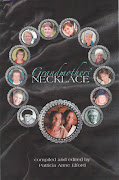
So when my friend Mary E. McIntyre recommended the Giller Prize-nominated book “Copernicus Avenue” to me, I read it with interest. Borkowski, in 16 linked short stories, gives us the urban Toronto Polish immigrant’s post-war experience along with the heartbreaking backstory of the Katyn and Baranica massacres. I learned five things reading the book.
- 1. I learned or re-learned the power of landscape and memory when telling a story. Borkowski creates a fictitious street in the heart of the old Roncesvalles neighbourhood in Toronto’s west end. It could have been any Polish neighbourhood in any city, but for me it brought back memories of visiting friends in Parkdale and Roncesvalles as a child. In fact, the house on the cover looks exactly like the house some Polish friends lived in on Macdonnell Avenue, the eastern boundary of the Roncesvalles neighbourhood. On Saturdays my Dad would sometimes take us down to visit these friends and also to buy fresh Kielbasa and Paska or Kolach for the holidays. I can still remember the smell of the garlic sausage mixed with the aroma of sawdust scattered on the floor of the butcher shop. Borkowski evokes this neighbourhood through sensual details about bakeries, butcher shops, churches and statues, street life and the characters that inhabited the neighbourhood. I felt like I was back there with my Dad.
- I learned that memoir can be fiction and fiction can be memoir. In other words, the writer can choose the stories to tell and how to tell them. Life-based stories can be presented as fiction when the writer feels he doesn’t remember enough to make it a memoir, but he can still base the stories on his life and memories. Which is better? Neither. It depends what the writer wishes to achieve and how well he remembers his life.
- I learned that linked stories together can be like a memoir or a novel. Grouped together with the same characters and time and place, these stories form a coherent whole. Each story can stand on its own and might even be published individually, as in Borkowski’s case with his story ‘Twelve Versions of Lech’. An emerging writer can increase his chances of finding a book publisher by having already published some stories.
- I learned or I was reminded that I never really understood the Polish World War Two experience, though I'd met people who’d survived it. The problem was: no adult wanted to explain in detail to a curious child what had happened. Why was a Polish friend flying for the British Air Force? Shouldn’t he be in the Polish Air Force? Oh, wait a minute, Poland was invaded and disappeared from the map for a while. This book reveals the hidden wounds and resulting behaviors of these immigrant characters, all of which seem terribly familiar to me. I learned about the horrors of Polish deportation to Siberia from Jane/Janina Boruszewski and I’m still learning subtle details of survival.
- I learned how historical details (backstory) can be woven into the story in description, character, plot and dialogue, without weighing down the flow of the story. Now to figure out how to do that myself!






1 comment:
Fabulous 'truths', Ruth; in particular, items 2 and 3 on your list of 5 Things Learned resonated with me.
Post a Comment